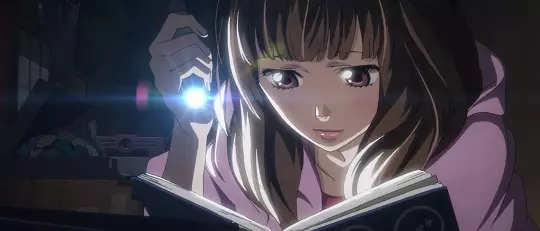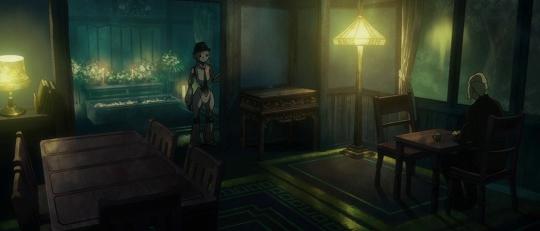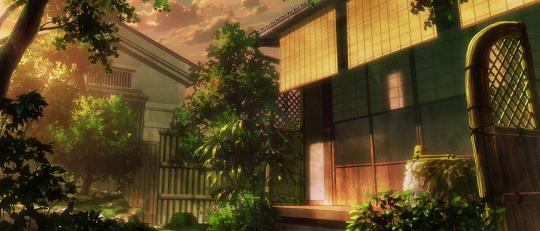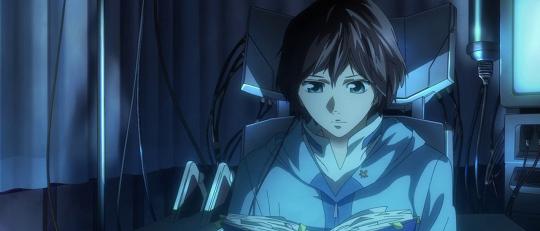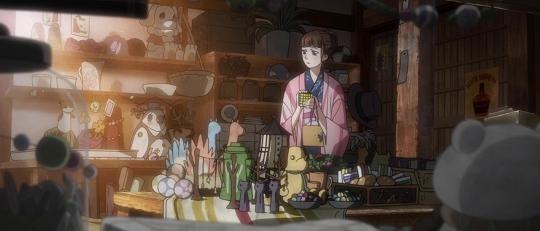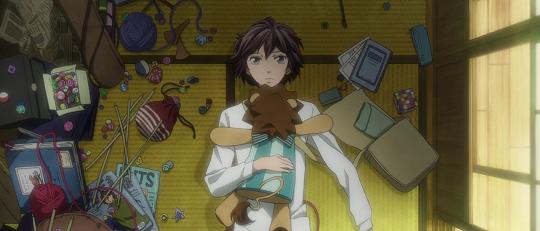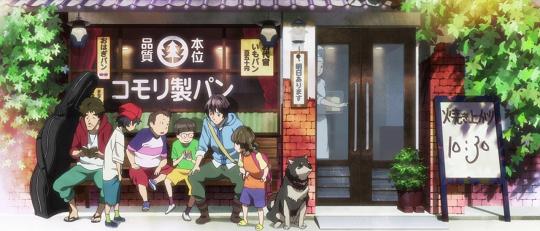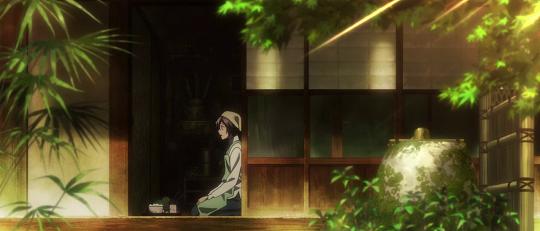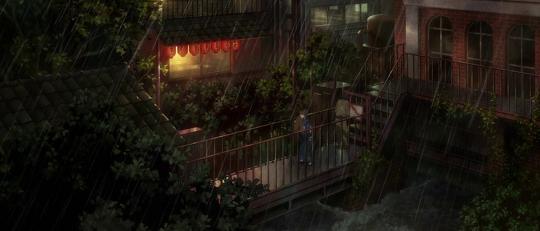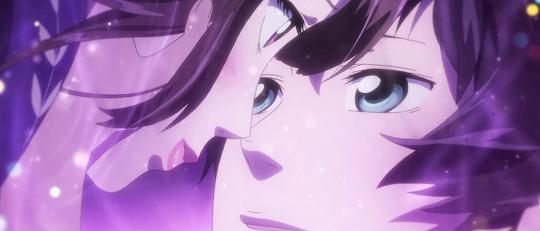There’s a point about two thirds of the way through Hal (Haru) where, during a festival, two fan-bearers are just out of sync with one another during their routine. It’s obviously intentional and though a small touch, it’s indicative of this short, one hour, film as a whole: detail orientated.
Set in the near future, Hal’s plot concerns a care robot taking on the guise of a deceased person in order to help their partner overcome their all-encompassing grief at their passing. The detail then is not only in the sumptuous backgrounds and animation work by Production I.G. but also in the very subtle portrayals of the characters. So every furtive look, every motion is crafted to be as effortless and as natural as possible and to ensure that you’re never drawn out of the delicate story being told.
This is a character drama at heart after all regardless of the science fiction premise, you could just as well swap the robot for a ghost or an hallucination without losing the heart of the story: coming to terms with the cripplingly complex mix of grief at the loss of a loved one and guilt over surviving them. Supplementing that is a careful teasing apart of the couples’ back stories, both their fractious relationship with one another and their own histories from childhood onward. These characters are after all barely past adolescence so that youthful fire still drives them even in their melancholy.
It’s a little incongruous when you first start the film because the act of a robot - a recognisable and otherwise mute robot - donning the visage of a human isn’t explored in any great detail. So neither the ethical nor the physical ramifications of doing this are covered, Hal only runs into one person who knows him, however that ties very neatly into the film’s late stage twist. It’s unexpected and even revealing that the film has a twist is a spoiler because with forewarning, the trick is plain to see and is telegraphed long before the reveal; although the main character being called “Hal” (as from 2001: A Space Odyssey and subsequently a letter shifted “IBM”) is a subtle bit of misdirection.
The twist itself at first feels a little cheap and unnecessary and leaves an odd taste when the rest of the film had been relatively straightforward. It’s only in retrospect that the subversion of expectation is revealed to be an important part of the story and part of how we view the two characters involved. Kurumi herself is shown to be fierce and dextrous but well loved with an abundance of energy, it’s somewhat distressing then to see her locked away and reticent, floating through her house like a ghost. Hal meanwhile at first seems attentive and concerned, yet his past his reveals him to be anything but: a catalogue of brutality and hardship. These personalities fit with the other motifs that run through the film like the water of the rivers and rain or the multi-coloured Rubik's cubes with obscured phrases written upon them.
At first it seems like these cubes are an analogy for Hal understanding Kurumi’s feelings, the expectation that by completing the cubes (the more difficult 5x5 “Professor” cubes no less) it will be equivalent to breaking through to the heart of the grief she is feeling. Even before the twist it becomes apparent that it is not the cubes but the small red recording device that serves this purpose, doing double duty in impartially revealing the past between Hal and Hikaru as well as being physically reconstructed by Hikaru herself throughout the film.
All of this is mightily impressive from first time director Ryoutarou Makihara who thus far has spent his career as a key animator for Production I.G., a fact which may go some way to explaining the luscious visuals. Set in Kyoto, both the animation and sound design capture the alluring quiet of a traditional Japanese house and the happy bustle of a local festival in a way that is reverent but not overbearing, giving a sense of place without letting them overshadow the story.
It all comes back to detail then and how even though we don’t find out what actually happened in the accident, that the idea of robots as carers isn’t explored (even Robot & Frank attempts this) and the storyline with the old friend just stops despite its sinister undertones; despite all of this Hal is an affecting and remarkably satisfying character piece. The limited cast are kept relatable and nuanced without being oblique and the short run time allows the twist at the end to be fathomed out without demanding a second viewing. A lovely film that’s not without a few rough edges but well worth spending time with.
